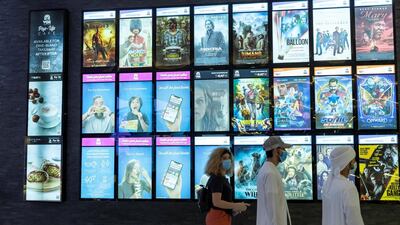Online shopping among young Arabs increased by 50 per cent since the onset of the Covid-19 pandemic.
The findings were published in the Arab Youth Survey, which asked the views of 4,000 Arabs between the ages of 18 and 24 across 17 nations in the Middle East and North Africa.
It suggested the Arab world was well on its way to becoming a digital-first region, with 50 per cent of young people saying they were shopping online more frequently, and almost the same applying to the use of contactless payment methods (49 per cent), since the pandemic began.
The number of young Arabs choosing to shop online has risen steadily in recent years.
The 2018 results of the annual survey showed just 53 per cent of those polled shopped online with this rising to 80 per cent this year.
More than two thirds of young people (67 per cent) said they were streaming more videos than before the outbreak.
The survey also revealed that most young people prefer to watch videos and movies alone on their phone. Close to two-thirds of those surveyed (62 per cent) said they preferred to view video content on their smartphones.
Almost one in three (32 per cent) said smartphones were their preferred method of watching movies, with only 11 per cent saying a trip to the cinema was their favourite way to watch a film.
The decline in the number of young people preferring to watch a film on the big screen mirrors a bleak global trend for the cinema industry, which has been exacerbated by the pandemic.
Cineworld, the second biggest cinema operator on the planet, announced this week it was shutting down its screens in the US, the UK and Ireland putting almost 37,500 jobs at risk.
Even one of cinema's most enduring icons, James Bond, was powerless in the face of Covid-19, with the release of the latest entry in the 007 series No Time To Die delayed several times. The film will not be shown on big screens until 2021 at the earliest.
Social media cemented its place as the most popular source of news for young Arabs.
In 2015, only 25 per cent said it was their most common news source while this year, the number has risen to 79 per cent.
“Youth have a voracious appetite for consuming news. They’re glued to their smartphones,” said Muna Shikaki, correspondent for Al Arabiya News Channel in Washington DC.
“A substantial number of viewers are desperate for updated and reliable news related to the pandemic and have more time to consume it due to Covid-19 shutdowns.”













